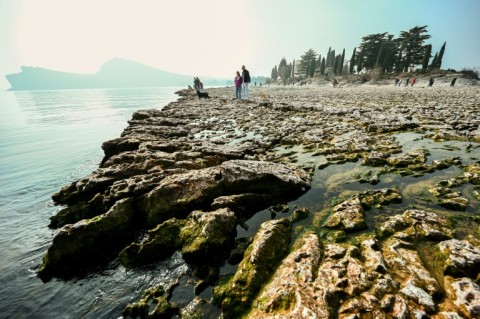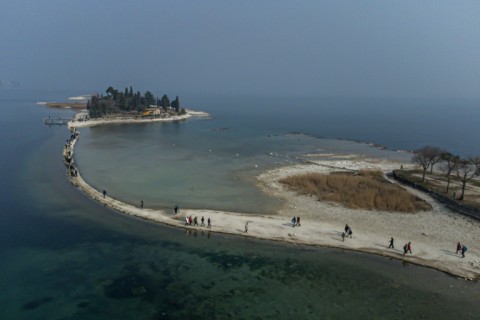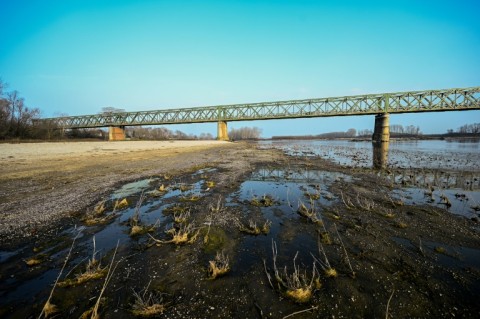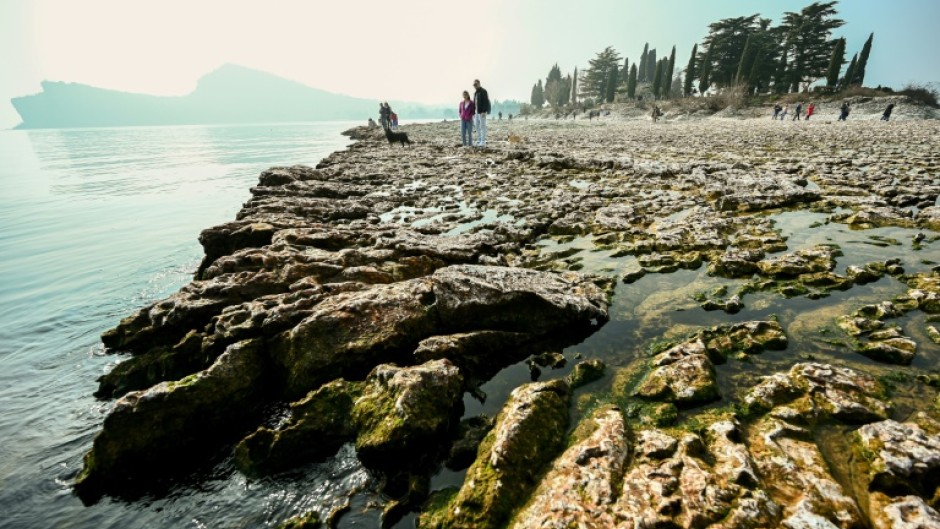
ROME - On foot or by bike, visitors stream across the narrow path connecting the small island to the edge of Lake Garda, a symbol of the winter drought hitting northern Italy.
Dotted with cypresses and rocky white beaches, San Biagio island was in the past only accessible by boat.
But historically low waters on the lake have revealed a sand and stone causeway -- and tourists are flocking to the site.
"It's a beautiful sight, but sad at the same time, because it's caused by drought. We hope it will be short-lived," said Alberto Pampuri, 62, who cycled to the spot with his wife and two friends from nearby Brescia.
The unusual phenomenon recalls the "Floating Piers" installation created in 2016 by artist Christo, when yellow floating footbridges were placed across nearby Lake Iseo.

"But they were artificial bridges, whereas this is a natural work of art," said Agata Carteri, a 48-year-old teacher.
A lack of snow on the surrounding mountains, warm temperatures and no rain for six weeks have combined to bring the water levels of Garda, Italy's largest lake, to its lowest winter level for 30 years.
The waterline is 60 to 70 centimetres below the average for the last few decades.
After a record drought last summer which devastated harvests, the north of Italy is once again showing warning signs, with water levels low in the River Po, Lake Maggiore and Lake Como.

Almost 28 million tourists visited Lake Garda last year, around 40 percent of them from Austria, Germany and Switzerland.
"It's like walking on water," said Afra Vorhauser, from the northern town of Merano, after walking across to the uninhabited island.
In the bright February sun, families ate picnics on the grass or at wooden tables, while on the exposed beaches children climbed the rocks or skimmed stones.
This winter has seen a "new tourist movement, born out of the curiosity for discovering areas of the lake that are normally below water", said Paolo Artelio, head of local tourism agency Visitgarda.
These include the Grottoes of Catullus, the ruins of a Roman villa built on the Sirmione peninsula, a part of which has emerged thanks to the lower water level.
But officials are keen to emphasise that the normal attractions of the lake remain.
"For tourists, nothing changes, because the lake still has an average depth of 136 metres -- they can surf, sail or swim as they wish," said Pierlucio Ceresa, secretary general of the Community of Garda, which is responsible for the quality of the water.
He said it was "premature to proclaim a disaster", saying that if it snows in the coming weeks and rains in March, the situation "will return to normal".

